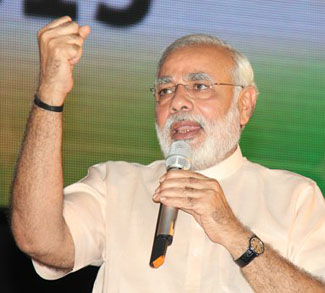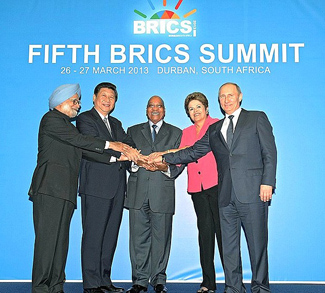Relations between India and Taiwan go back to the period when Chiang Kai-shek visited India in 1942, even before India’s independence, and met with the Father of the Nation, Mahatma Gandhi. New Delhi switched recognition from the Republic of China (Taiwan) to the People’s Republic of China (PRC) very early on (in 1949). Taiwan and India stayed aloof from each other in the Cold War as Taiwan became a strong ally of the United States while India was one of the founders of the non-aligned movement, though it inched closer to the erstwhile Soviet Union, especially after the signing of the Indo-Soviet Treaty of Peace, Friendship and Cooperation in 1971.
Besides, India’s closed, socialist-style economy did not enthuse neither the Taiwanese government nor Taiwanese businessmen.
Taiwan-India Relations in the Post-Cold War Era
Things started looking up in the early 1990s when India started its “Look-East Policy” (which has now been renamed the “Act East” policy) and liberalized its economy. This was in response to the break-up of the Soviet Union and the balance of payments crisis faced by India. During this time, the Indian Prime Minister was P V Narasimha Rao, while the Finance Minister was Manmohan Singh, who later went on to become the prime minister.
In 1995, Taiwan and India established representative offices in each others’ capital cities, New Delhi and Taipei respectively, and this had a very positive impact on bilateral relations. In 2012, the aircraft carrying Taiwan’s President Ma Ying-jeou made a stopover in the Indian city of Mumbai, on its way to Africa. The fact that the Indian government lent its approval is ample proof of its desire to increase interactions with Taiwan.
Future Prospects under the Modi Government
After Narendra Modi took over as the prime minister of India in May last year, he has vigorously pursued India’s “Act-East Policy.” During his recent visit to China, there was much progress on the economic front with deals worth $22 billion being signed between Indian and Chinese firms. During this trip, the Indian prime minister also visited South Korea and Mongolia.
The growing Indian economy offers huge opportunities for investment to Taiwanese firms, especially because of India’s growing middle class. One of India’s key strengths is I-T (Information Technology) and there are plenty of opportunities for Taiwan and India to collaborate in this area. Tourism could be another area which could be eyed by both Taiwan and India.
India’s engagement with East Asia has been increasing. It is a member of the East Asia Summit (EAS) and a founding member of the AIIB (Asian Infrastructure Investment Bank). On the political front, in view of India’s growing engagement with East Asia, it bodes well for India to interact regularly with Taiwan, on various issues.
More than 70 Taiwanese firms had invested in India by the end of 2013, with cumulative investment from Taiwan standing at approximately US$1.4 billion. In 2013, total bilateral trade stood at $6.171 billion. In light of the Indian PM’s “Made in India” initiative, the Indian government should see to it that many more Taiwanese firms choose India as a manufacturing base.
Presidential elections are due in Taiwan early next year and it is important for the Indian government to keep a close watch on these developments. As the Indian government has already introduced electronic visas for Chinese tourists visiting India, a similar scheme could be introduced for Taiwanese tourists visiting India. Many Taiwanese Buddhists would like to visit Buddhist holy sites in India and the Indian government could thus increase revenue earned from tourism.
There are many lessons for India to learn from the economic success of Taiwan. As India aspires to play a bigger role in Asia and on the global stage under PM Modi, giving an extra push to its ties with Taiwan, this is surely something that New Delhi should ponder over.
Dr Rupakjyoti Borah is currently a Visiting Scholar at the National Chung Hsing University, Taiwan. He has earlier been a Visiting Research Fellow at the Centre of International Studies, University of Cambridge, the Japan Institute of International Affairs (JIIA) and at the Australian National University. The views expressed are personal.




